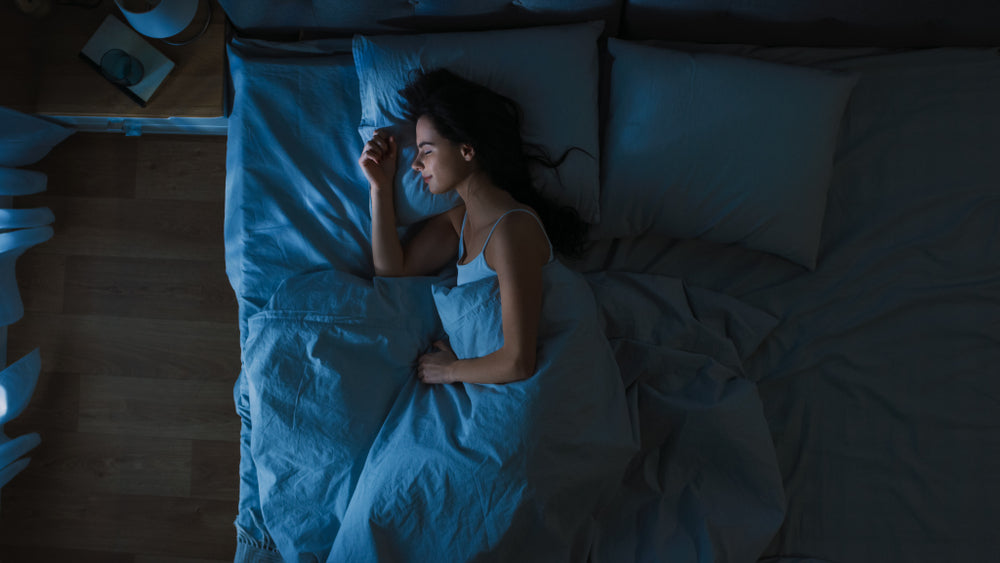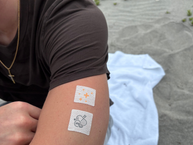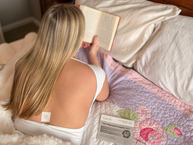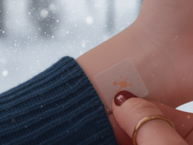Sleep feels so good, but many of us do not appreciate everything that getting adequate sleep can do for us. These are some of the benefits of getting enough sleep, and some tips for getting more or better sleep. Be sure to ask a healthcare provider if you think you may have sleep problems, and if you are considering using a sleep supplement such as a Sleep Aid Patch from PatchAid.
Why We Are Low on Sleep
Many Americans are low on sleep. They don’t get the average 7 to 9 hours that sleep experts recommend. Or, they do not get enough quality sleep, waking up often or having trouble falling asleep. You might have a hint that you are low on sleep if you have trouble waking up in the morning, or staying awake or focusing during the day.
These may be some reasons why people are low on sleep.
- They feel guilty about making time for it and may believe that sleep is just a luxury.
- They do not know the health benefits of getting a good night’s sleep, or they do not know the risks of being sleep-deprived.
- They do not know how to get a good night’s sleep.
Keep reading for some motivating benefits of sleep.
Benefits of Getting Enough Sleep
There are some benefits of getting enough sleep.
Improved blood sugar control.
Blood sugar can get out of whack after just one night of low sleep. The reason is that insulin resistance increases when you do not have enough sleep. When you get adequate sleep, you are giving your body something that it needs for normal insulin sensitivity. Insulin is the hormone that helps the body use sugar and maintain normal blood sugar levels. Too much insulin resistance leads to prediabetes and type 2 diabetes.
Better weight control.
Sleep helps with weight control in many ways. First, getting enough sleep helps normalize levels of hunger and satisfaction hormones. Without enough sleep, you can feel excessively hungry, even if your body does not need food. That’s why you may notice that you are starving when you stay up too late. Sleep also helps prevent excessive hunger through better blood sugar control as you do not get abnormally high spikes followed by sharp drops that make you hungry.
Sleep also helps prevent cravings. Sleep-deprived people are more likely to crave high-calorie foods, especially sugary foods and salty snack foods. Plus, if you do have cravings, you are more likely to cave into them if you are sleep-deprived. It is harder to have self-control.
More energy.
When you sleep enough, you feel better. It’s easier to work out. You can be alert during the day. It is easier to complete your tasks. In other words, you are not tired!
Lower risk for accidents.
Common sense says, and data shows, that you will have more accidents if you are tired.
Driving tired is a lot like driving drunk, and car accident risk can double, or worse, when you are slightly sleep deprived. Do yourself, your passengers, and everyone on the road a favor by getting enough sleep or by finding another means of transportation if you are tired.
Increased productivity.
When you can focus and stay alert, you can get more done. Sleep can increase productivity in other ways, too. You are less likely to make mistakes, which means that you will not need to take the time to fix them. Plus, memory can improve when you have adequate sleep compared to when you are low on sleep. That all adds up to better productivity and efficiency.
Stronger immune system.
Scientists do not know everything about how sleep works, but they do know that your body repairs and strengthens itself during sleep. This includes maintaining your immune system, including immune cells and various proteins that fight off infections. Getting adequate sleep can lower your risk for excessive colds and the flu. It may also help your body respond better to vaccinations.
Better mood.
Sleep deprivation is linked to greater risk for depression. Things can seem more frustrating and less bearable when you are tired. When you get enough sleep, though, life can look rosier. That’s why “things look better in the morning.”
How to Get Better Sleep
Are you ready to get more sleep? You can probably improve one or more areas of sleep hygiene, or your behaviors surrounding sleep. These are some tips for getting more or higher-quality sleep.
- Have a consistent bedtime, even on weekends.
- Go to bed early enough each night so that you give yourself enough time for your goal number of hours of sleep.
- Sleep in a cool room. Many people think that they need to sleep in a warm room.
- Make your sleeping environment dark. Consider blackout curtains if there are bright lights outside of your room, and light shines in through a window.
- Establish a bedtime routine. You may need to experiment with what works for you, but the routine might be about 20 to 30 minutes. It might include things like brushing teeth, stretching, reading, meditating, journaling, making a to-do list for tomorrow, or taking a bath.
The Sleep Aid Patch by PatchAid has melatonin, which is a natural sleep hormone that your body produces. The patch also contains additional non habit-forming ingredients, including magnesium, L-tryptophan, which is an amino acid, and 5-HTP. You can put it on overnight.
There is also a Sleep Aid Patch for Kids by PatchAid, since you know the benefits of a good night’s sleep for children! They can learn better and behave better when they are well-rested, and they can use a patch without you needing to force them to swallow pills. The patch is melatonin-free and contains herbal ingredients.
When you put sleep first, you can give yourself a world of benefits relating to health and safety. Take steps to give yourself adequate sleep, and the Sleep Aid Vitamin Patches by PatchAid may be part of your line-up.* Ask your healthcare provider if you have any concerns about health or sleep, and before using any supplements.
*The Food and Drug Administration has not evaluated these statements. PatchAid patches are not intended to diagnose, treat, cure or prevent any disease. Anyone with a medical condition should seek the advice of a licensed medical practitioner. Individual results may vary.







